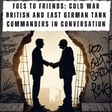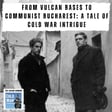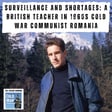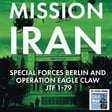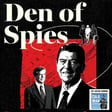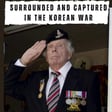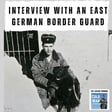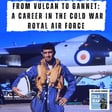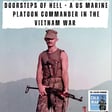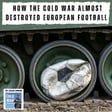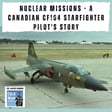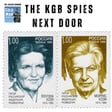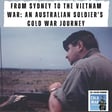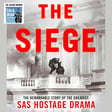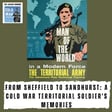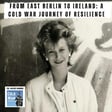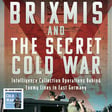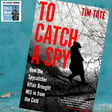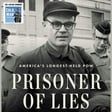
The Soviet Sixties (359)
Beginning with the death of Stalin in 1953, the “sixties” era in the Soviet Union was just as vibrant and transformative as in the West. The ideological romanticism of the revolutionary years was revived, with a renewed emphasis on egalitarianism, equality, and the building of a communist utopia.
Mass terror was reined in, great victories were won in the space race, Stalinist cultural dogmas were challenged, and young people danced to jazz and rock and roll.
I speak with Robert Hornsby who has written "the Soviet Sixties" which examines this remarkable and surprising period, showing that, even as living standards rose, aspects of earlier days endured.
Censorship and policing remained tight, and massacres during protests in Tbilisi and Novocherkassk, alongside invasions of Hungary and Czechoslovakia, showed the limits of reform. The rivalry with the United States reached perhaps its most volatile point, friendship with China turned to bitter enmity, and global decolonization opened up new horizons for the USSR in the developing world.
These tumultuous years transformed the lives of Soviet citizens and helped reshape the wider world.
Buy the book here & support the podcast https://uk.bookshop.org/a/1549/9780300250527
Linked episodes
My father was Nikita Khrushchev Part 1 https://pod.fo/e/f831
My father was Nikita Khrushchev Part 2 https://pod.fo/e/f82f
The Cuban Missile Crisis https://pod.fo/e/143b25
Soviet leader Leonid Brezhnev https://pod.fo/e/f9094
A freedom fighter in the 1956 Hungarian Revolution https://pod.fo/e/b1813
The Prague Spring https://pod.fo/e/f83a
Episode extras https://coldwarconversations.com/episode359/
The fight to preserve Cold War history continues and via a simple monthly donation, you will give me the ammunition to continue to preserve Cold War history. You’ll become part of our community, get ad-free episodes, and get a sought-after CWC coaster as a thank you and you’ll bask in the warm glow of knowing you are helping to preserve Cold War history.
Just go to https://coldwarconversations.com/donate/
If a monthly contribution is not your cup of tea, We also welcome one-off donations via the same link.
Find the ideal gift for the Cold War enthusiast in your life! Just go to https://coldwarconversations.com/store/
Support the project! https://coldwarconversations.com/donate/
Follow us on Twitter https://twitter.com/ColdWarPod
Facebook https://www.facebook.com/groups/coldwarpod/
Instagram https://www.instagram.com/coldwarconversations/
Youtube https://youtube.com/@ColdWarConversations
Love history? Join Into
